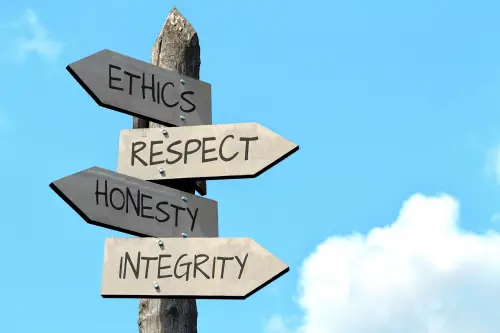People react to certain events or circumstances in different ways. Their manner of approach or behavior may be influenced by certain beliefs. These beliefs are rooted on someone’s personal values and principles. When we talk about values and principles, initially, you might think that they are one and the same. However, if you dig deeper into a person’s psyche, you will understand that there is indeed a difference between the two. Continue reading this article to understand the difference between values and principles.
Summary Table
| Values | Principles |
| Internal and subjective | Self-evident and objective |
| Malleable | Firm, stable |
| Change over time | Unchanging |
Definitions

Values are about someone’s faith, beliefs, and opinions pertaining to certain ideas or issues. It is something internal, and may be swayed or influenced by certain conditions or the state of life a person has at the moment. Values may change as the environment, demands, or needs change.
Here are some important points to understand about values:
- Values are personal and subjective
- These can change over time
- Values are based on their merit, which is measured by how they align with principles
The habits and actions a person takes demonstrate their values.

Principles are often part of most traditions and philosophies. Concepts of integrity, honesty, and fairness are principles that transcend individuals and cultures. Principles govern how people behave and interact in various situations, often in a firm and consistent stance.
Here are some other points about principles it’s good to understand:
- Principles do not change with the times.
- They do not depend on the values a person follows
- They’re not dependent on religious or personal belief systems
According to Merriam-Webster’s online dictionary, principles are “a comprehensive and fundamental law, doctrine, or assumption.” In other words, principles are “natural” laws or beliefs that are not debated. These are generally understood to be the way things are.
Values vs Principles
The main difference between values and principles is that values are internal and subjective to a person, whereas principles are objective and self-evident. Values are beliefs and opinions that a person holds dear, but due to changes in needs and in one’s environment, values may also change over time.
Principles, on the other hand, are objective realities and rules a person lives by, and something that is firm and often permanent. Principles may be used as a reference point in determining one’s current goals and values.
Values govern a person’s behavior, while principles govern the consequences of their actions. What does this mean? A person’s values make them behave in certain ways.
On the other hand, principles have more to do with the consequences of a person’s actions. These consequences can lead to punishment and condemnation on the one hand or praise and rewards on the other.
In addition, values help a person get through life, while principles provide you with the way through life, similar to a map.
Values are dependent on the choices a person makes, along with their personal preferences. On the other hand, principles are already determined and are objective as well as universal.
The more a person’s values and behavior do not match up with principles, the more likely the person is to be judged and punished for their actions.





